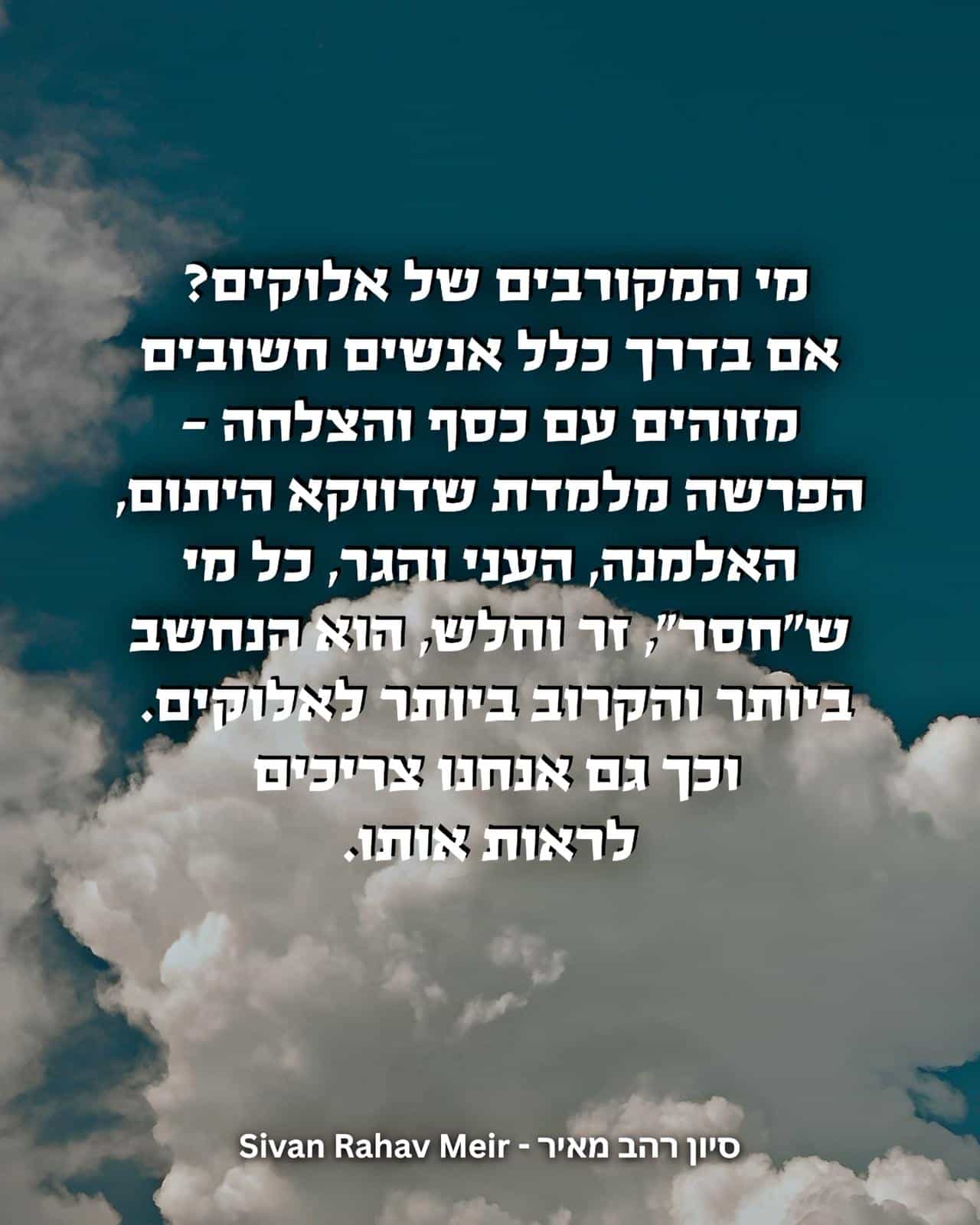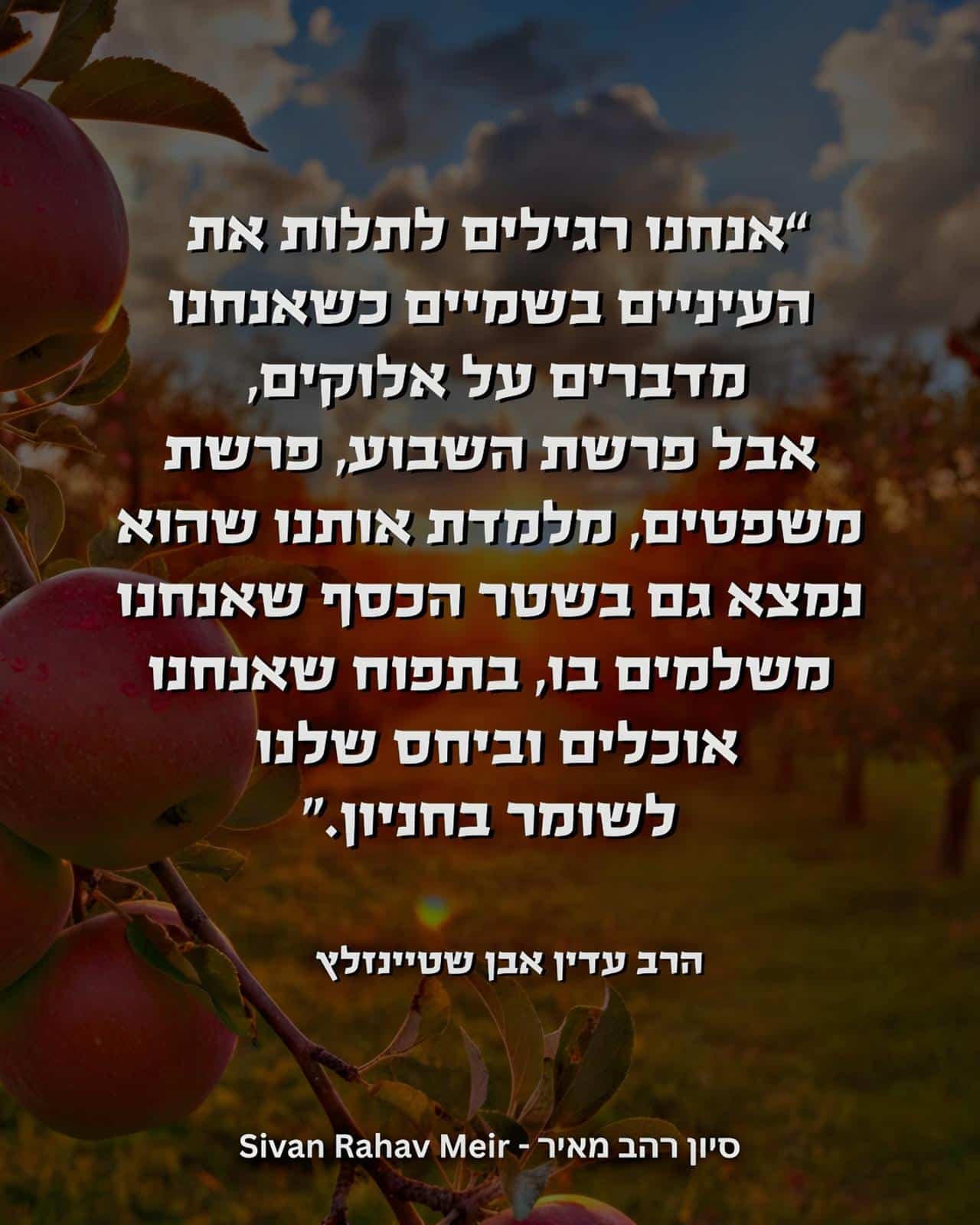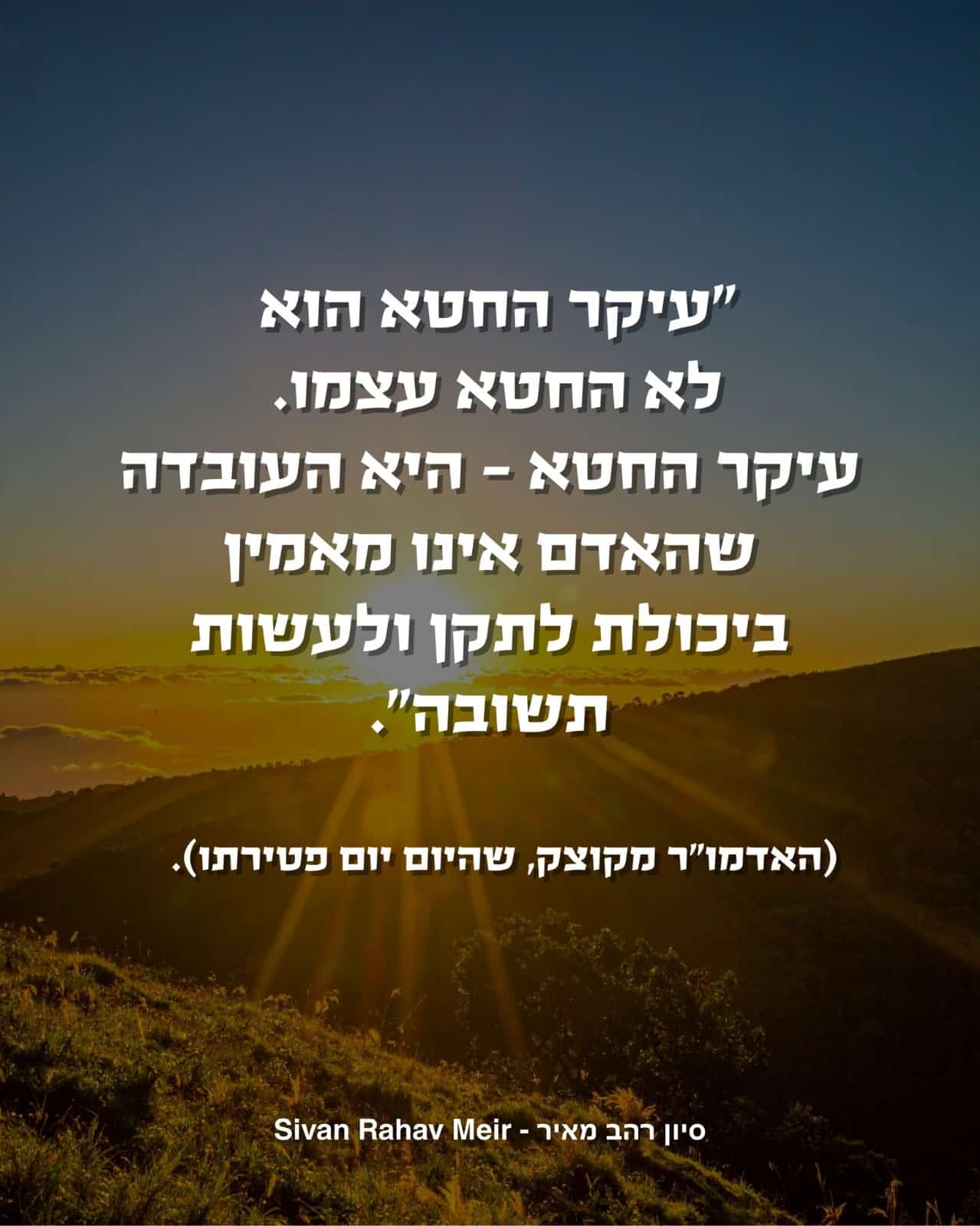Translation by Yehoshua Siskin
A teen-age girl from a religious home shared with me her challenges of separating between her issues she has with her religious community and Torah values. Many people have a score to settle with their childhood milieu – with teachers, neighbors, siblings and parents. Many times, the pain they endured was truly terrible. Eventually, they decided to distance themselves from everything – the whole package – including G-d.
In this weeks' Torah portion, we find Yosef, who had all the good reason to leave his family's' faith and turn his back on G-d. The people closest to him-his brothers-were jealous of him, hated him, threw him into a pit and sold him to a passing caravan. He could easily have decided to cut himself off from everything connected to his past.
He could have written a book, filmed a documentary series, interviews in the media, generating headlines concerning his abandonment.
But Yosef chose otherwise. Despite the trauma he had suffered, he did not give up the essentials: his identity, his faith, his G-d. The more his situation deteriorated, the higher he elevated himself, and his direct connection to G-d only got stronger. He wound up in Egypt, but instead of becoming angry, bearing a grudge, and rejecting his past – he lived there as an openly believing Jew, visibly connected to G-d, so that everyone who met Yosef knew exactly who he was.
A particular religious environment and people from our past – they are not really all there is. Beyond people, who are more than prone to make mistakes, there is also unmistakable truth, which Yosef would never abandon.









